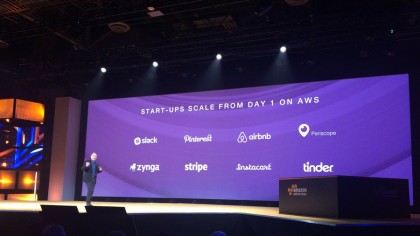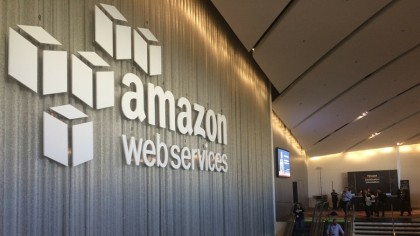Clash of the public cloud Titans: AWS vs Microsoft vs Google vs IBM
How do the public cloud's Big Four compare?

Unlimited storage and computing power. On tap. What's not to like? Hyperbole is hard to avoid, but it's no exaggeration to say that public cloud services may be the biggest transformative technology of our time. So much so that finding a fast-growing company – tech or otherwise – that doesn't use the public cloud is becoming difficult.
But who is providing it? As it becomes more of a commodity – and the market grows exponentially each year – some of tech's biggest players are attempting to cash-in on the cloud as companies try to hyper-scale their apps and services.
The public cloud is big, and growing: IDC predicts that by 2020, spending on cloud services and related hardware and software will be more than $500 billion (around £330 billion, AU$690 billion), three times the current level. There are hundreds of providers, with some big names among them vying for top spot in this lucrative market.

Which public cloud is the biggest?
It's projecting year-on-year growth of over 80% and is now a $7 billion (around £4.6 billion, AU$9.7 billion) business. This is Amazon Web Services (AWS), which is valued at $50 billion (around £33 billion, AU$69 billion) and continues to lead the market.
"It may top out at $9 billion (around £6 billion, AU$12.5 billion) in total revenue for the year, up from roughly $6 billion (around £4 billion, AU$8.3 billion) the year before – a breakneck pace for an organisation that now claims over one million active customers," says William Fellows, cloud expert at 451 Research.
"This pace of growth is possible because AWS pioneered the commercial success of cloud computing, starting with IaaS (Infrastructure as a Service) and building out from there," he adds, adding that it was Amazon Web Services' near total automation of IT resource and service delivery that encouraged a new consumer-style retail experience to buying business IT.
AWS customers include Dropbox, Pinterest, Airbnb, Slack, Tinder, Dropcam, Ticketmaster, Persicope, Capital One, Netflix and even NASA's Jet Propulsion Laboratory.
Are you a pro? Subscribe to our newsletter
Sign up to the TechRadar Pro newsletter to get all the top news, opinion, features and guidance your business needs to succeed!

What are the key characteristics of AWS?
At its core is the Elastic Compute Cloud (EC2) service and its S3 storage service. However, it's constantly adding more services, from Amazon Machine Learning and AWS IoT to QuickSight and Kinesis Firehose.
"AWS has used its first mover advantage, along with its ability to quickly add new features, to stay out ahead," says Patrick McFadin, Chief Evangelist for Apache Cassandra at DataStax. Big data and analytics, Internet of Things, DevOps – it's all here. "It keeps adding new products that replace traditional solutions [and] the result is an erosion of objections from large organisations considering a cloud move."
AWS' pay-as-you-go bandwidth pricing is also a key part of its success; fear of financial lock-in is not a consideration. It's the extra features and SaaS that makes AWS its money, and that's the industry trend; the price of compute is getting less and less – it's a loss-leader.
However popular it might be with startups and big companies, AWS doesn't have long-term relationships with big business, unlike one of its challengers.

Can Microsoft Azure challenge AWS?
It's definitely trying. "Microsoft Azure is coming on strong and Google is lingering back, surprisingly," says McFadin, though he thinks the former is still far behind AWS on features and performance. "Microsoft is throwing a lot of its might behind their cloud and it's starting to show … it also has the best large enterprise relationships, and it understands how those enterprise IT teams work."
Redmond's customers include Apple iCloud, AccuWeather, Boeing, Dell, Travelocity, Samsung, BMW, LG, eBay, Pixar, EasyJet, NBC News Digital and GE Healthcare. With the predicted continued growth of cloud computing – particularly the coming trend for big companies to warm up to, then migrate completely to the cloud – Microsoft's more 'touchy-feely' reputation among big business gives Azure the potential to catch up with AWS.
- 1
- 2
Current page: Introduction and Azure's challenge to AWS
Next Page Google Cloud Platform and IBM BluemixJamie is a freelance tech, travel and space journalist based in the UK. He’s been writing regularly for Techradar since it was launched in 2008 and also writes regularly for Forbes, The Telegraph, the South China Morning Post, Sky & Telescope and the Sky At Night magazine as well as other Future titles T3, Digital Camera World, All About Space and Space.com. He also edits two of his own websites, TravGear.com and WhenIsTheNextEclipse.com that reflect his obsession with travel gear and solar eclipse travel. He is the author of A Stargazing Program For Beginners (Springer, 2015),
